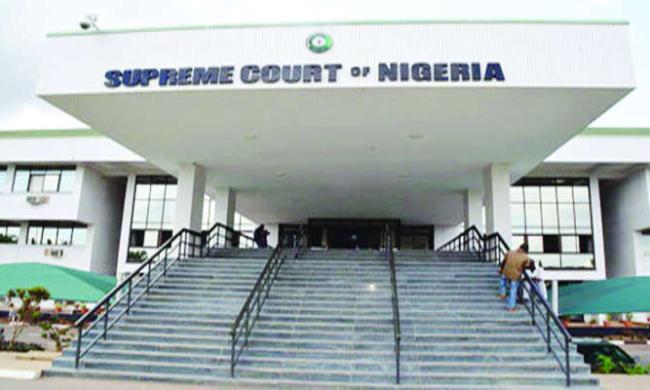The Supreme Court has scheduled October 22 for the hearing of a lawsuit filed by 16 state governments challenging the constitutionality of the laws establishing the Economic and Financial Crimes Commission (EFCC) and two other federal agencies.
A seven-member panel, led by Justice Uwani Abba-Aji, set the date after granting the states’ request to be added as co-plaintiffs and allowing the consolidation of their cases with an original suit filed by the Kogi State Government through its Attorney General.
The states involved in the case include Ondo, Edo, Oyo, Ogun, Nasarawa, Kebbi, Katsina, Sokoto, Jigawa, Enugu, Benue, Anambra, Plateau, Cross River, and Niger.
The plaintiffs argue that the Nigerian Constitution is the supreme law, and any law inconsistent with it is invalid. They contend that in a previous case (Dr. Joseph Nwobike vs. Federal Republic of Nigeria), the Supreme Court ruled that the EFCC Establishment Act was based on a UN Convention against corruption. However, the plaintiffs claim that when the EFCC Act was enacted in 2004, the proper constitutional process under Section 12 of the 1999 Constitution, which requires the approval of state Houses of Assembly to domesticate international conventions, was not followed.
They argue that without the approval of the majority of state legislatures, the EFCC Act and similar laws cannot legally apply to states that did not consent, and therefore, such institutions should be considered illegal.
When the case was heard, the majority of the states sought to be joined as co-plaintiffs, while two requested the consolidation of their cases. Kogi State’s Attorney General, Abdulwahab Mohammed, informed the court that 13 states had expressed interest in joining as co-plaintiffs, while two favored consolidation.
Following submissions from the lawyers, Justice Abba-Aji granted their requests and adjourned the case to October 22 for hearing.
The original lawsuit, filed by Kogi State’s Attorney General against the Attorney-General of the Federation, raises six questions for the court’s determination and seeks nine reliefs. These include declarations that the Federal Government, through agencies such as the EFCC and the Nigerian Financial Intelligence Unit (NFIU), lacks the authority to issue directives or investigate matters related to the management of Kogi State’s funds or those of its local governments.

